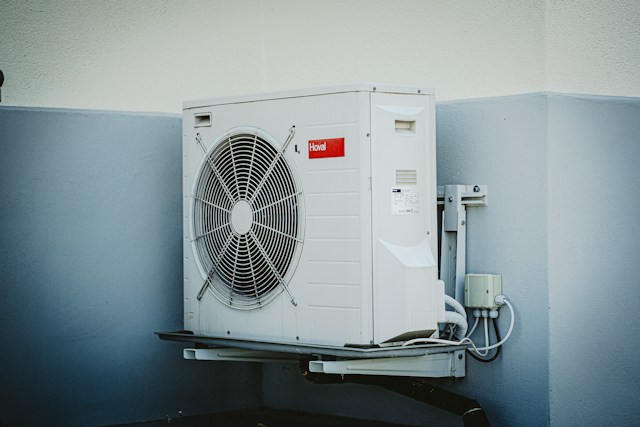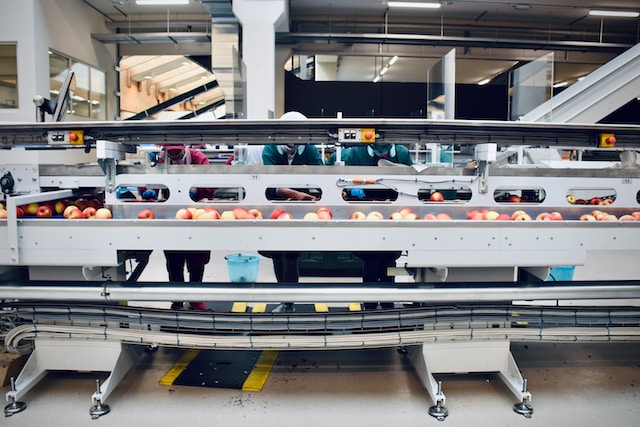As technology advances and homes and buildings become more sophisticated, there is an increasing demand for skilled professionals who can install, maintain, and repair complex heating, ventilation, air conditioning, and refrigeration (HVAC/R) systems. This presents a major opportunity for those seeking a stable, well-compensated, and recession-proof career in an essential trade if you’re curious about whether HVAC technician training may be right for you,
The Growing Need for HVAC Technicians
The Bureau of Labor Statistics projects strong growth for HVAC and HVAC/R mechanics and installers over the next decade, especially across southern states with substantial new construction. Several key factors drive this rising demand:
Construction Boom – Continued home building and commercial property development to support thriving businesses and populations, leading to ongoing installations of climate control systems. Both wiring new buildings and upgrading old structures boost job potential.
Advancing Technology – Contemporary HVAC systems integrate sophisticated solutions like smart thermostats, multi-zone divisions, programmable variables, occupancy sensors, photovoltaic solar, plus high-end efficiency developments like inverter compressors, air-to-water dual-source heat pumps, and variable refrigerant flow (VRF) units. This requires specialized expertise to handle.
Sustainability Priorities – With a greater focus on energy efficiency standards for carbon reduction and cost savings today, both new and existing buildings need upgraded equipment alignment. HVAC technicians help enable greener building performance.
Extreme Weather Events – Severe storms, flooding, heatwaves, droughts, and wildfires occurring more frequently boost emergency repair needs for climate control systems. Evaluating damage and restoring operation carries crucial time sensitivity.
What are the key steps to Beginning HVAC training?
If the critical importance and job security of the HVAC field appeals to you, what should your next steps be? Follow this roadmap to launch your training journey:
Earn a High School Diploma or GED
Formal HVAC education builds upon core competencies like math, science, reading comprehension, and analysis. Ensure you have these foundations locked in before moving to specialized trade skills. Handling advanced measurements, calculating loads, interpreting technical manuals, applying physics concepts, and more underlies success.
Enroll in an Accredited Program
Many options exist, ranging from community college certification to technical school diplomas to apprenticeships. Compare course content, costs, durations, and career prospects when selecting. Hands-on lab practicums blended with classroom theory enable proficiency. Programs approved by HVAC Excellence or Partnership for Air Conditioning, Heating, Refrigeration Accreditation (PAHRA) signal quality.
Study Essential Hard Skills
Master deep technical knowledge around materials science, tools, codes, system design/sizing, installation, troubleshooting repairs, emerging tech, etc. Expert-led HVAC training delivers these specialized hard skills underpinning the trade. Gaining mastery remains crucial for smooth career development.
Develop Soft Skills
Beyond technical capacity, cultivate customer service, communication, collaboration, critical thinking, and problem-solving. These enable smooth client interactions, stakeholder coordination, and continuous career growth into leadership roles.
Get Licensed
All states require HVAC technicians to obtain licenses demonstrating competency. Fulfill exam eligibility requirements through accredited education programs and testing. Licensing signals credibility to employers and clients.
What are Key HVAC Training Focus Areas?
Comprehensive HVAC/R certification curricula encompass diverse essential knowledge domains:
Electrical Circuits
Understand wiring diagrams, calculate electrical loads, select and install components, and connect control boards. Learn key protocols protecting equipment and human safety.
Heating Technology
Master various furnace types, heat pumps, boilers, hydronic heating, and solar thermal applications. Evaluate appropriate selections fitting space requirements and efficiency goals.
AC/Refrigeration
Learn split ductless systems, water and air-cooled chillers, psychrometrics, commercial refrigeration, and cryogenics. Grasp the intricacies of cooling, dehumidification, circulation, ventilation, and piping insulation needs.
Air Distribution
Design ducts, calculate air change rates, size fans and coolant lines, and install vents to balance airflow. Ensure optimal circulation reaching all zones as intended for efficiency.
Building Automation
Operate smart climate and energy management systems and advanced diagnostics. Interface digital controls with mechanical components for streamlined oversight.
Testing & Inspection
Conduct performance tests, diagnose issues, and maintain safety and efficiency. Perform essential quality assurance through sensor readings, leak checks, combustion analysis, and technical certifications.
Codes & Standards
Apply intricate regulations like EPA 608 governing safe, ethical, and sustainable HVAC operation. Uphold critical best practices protecting people, equipment, and environments.
Business Operations
Manage customer relations, estimates, invoices, warranties, and licensing. Cultivate professionalism and service mindset alongside technical expertise.
What are Key Career Paths in HVAC?
The wide skillset developed in HVAC training opens doors to diverse specialties:
- Installation & Replacement – Size, select, and install full systems in new buildings or upgrade existing structures. Site evaluation, planning, execution, and inspection play key roles.
- Maintenance & Repair – Perform routine maintenance and seasonal changeovers, address repair requests, and provide emergency services to keep climate systems running smoothly and safely with minimal downtime.
- Design & Consultation – Create detailed system plans for commercial buildings, advise clients on equipment options, and manage full projects from vision through completion.
- Facilities Management – Oversee all HVAC equipment, compliance, technicians, and service contracts for climate control across a large building portfolio or company.
- HVAC Inspector – Conduct safety and performance inspections plus enforce local and federal compliance codes. Cultivate deep familiarity with intricate regulations.
- Sales & Distribution – Sell system components, tools, and parts supplying wholesale and retail HVAC companies. Consult customers on appropriate purchasing aligned with project needs.
- Entrepreneur – Launch your own HVAC contracting, maintenance, or specialty firm. Handle client acquisition, operations, finance and long-term strategy.
As urbanization and tech integration accelerate across human civilization this century, expertise in designing, installing, and optimizing complex heating, ventilation, and air conditioning systems becomes more invaluable. HVAC professionals are responsible for customer service, cutting-edge technology, environmental sustainability, and public health/safety.
Though the role combines rigorous technical competencies with people-centric service skills, the preparation path can be manageable. By researching local training options, understanding licensing requirements, and crystallizing workplace aspirations early on, those intrigued by HVAC trades can feel empowered to pursue specialty education strategically. With national HVAC demand and compensation rates outpacing many other fields today, now proves an opportune moment for launching careers that promise stability, purpose and prosperity. From seasoned mentors passing wisdom forward to emerging generations, the HVAC community welcomes newcomers ready to cultivate better-built environments for all.







